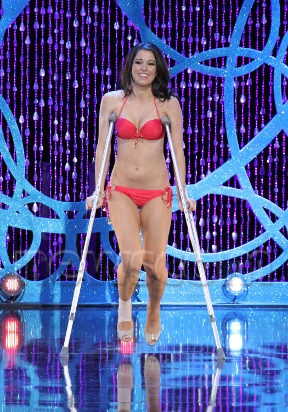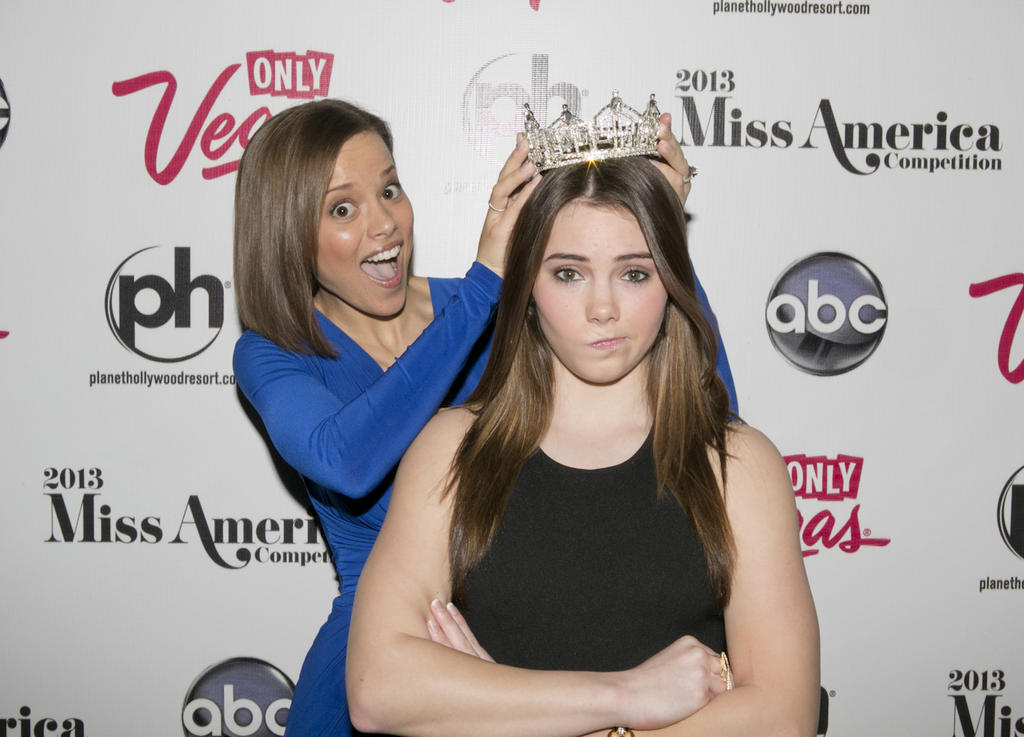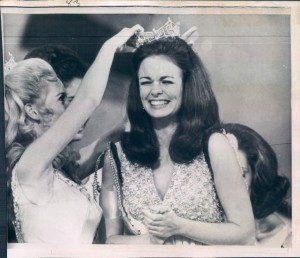The time comes round every year: Miss America week! Tomorrow is the live broadcast and as usual I'm excited (but this year should be especially interesting with a 20/20 feature on the pageant starting at 8 pm). The 2013 Pageant will be a little different for me than last year's-- a time when I thought I might never sleep again-- but now my one-year-old (!) let's me sleep so I'm good to go (I was also reminded of this when I spoke on NECN yesterday about how hard it is for individuals to project themselves into the future).

Now I know Miss Universe was only a few weeks ago (both pageants have made date shifts in the past few years, which means we get more concentrated pageantry and less spread-out glitz) so it might be useful to explain the difference between Miss USA/Universe and Miss America. As you might be able to tell from the previous sentence Miss America is an end in itself; you don't win and go on to compete for Miss Milky Way. Also, the three "Ts" separate the two pageant systems (this is my trademark here, so please quote me!): tuition, talent, and Trump. Miss America requires a talent, awards scholarship money, and isn't owned by Donald Trump.
Miss Alabama USA 2012 has been in the press lately thanks to her boyfriend and a zealous sportscaster. Katherine Webb, the girlfriend of Alabama quarterback AJ McCarron, has been getting a lot of attention since she was shown during the national championship game earlier this week (proving pageants and football still mix a lot, especially in the South). It's been a bit of a distraction to Miss Alabama America 2012, Anna Laura Bryan, who just won a big prize at Miss America (the Quality of Life Award goes to the contestant who has the "best" platform issue-- hers is related to autism). If you need an even easier way to remember the difference between the America and USA systems, Miss Alabama 2010, Ashley Davis, put it succinctly on Twitter: "Kate Middleton would be Miss Alabama, while Kim Kardashian would make a great Miss Alabama USA."
Other Miss America contestants have garnered their own fair share of press attention in the weeks leading up to the pageant. For instance, if you Google Miss DC Allyn Rose you get over 3 million hits. Rose has appeared on all the morning talk shows, People, and many more in light of her decision to undergo a double mastectomy after the Pageant. Her mother passed away from breast cancer and while Rose herself has never had cancer she has a genetic predisposition (note that Miss New Hampshire, Megan Lyman, has survived cancer; Miss Alaska has shaved her head for cancer). It's unclear if the hype will help Rose, but I think we can all agree that we'd love to see her talent-- artistic roller skating-- live tomorrow night. Here she is competing in prelims earlier this week:
Other health-related issues have some contestants in the press. Miss Montana, Alexis Wineman, is the first state winner to compete with autism (STILL love the name of her platform). But Miss Puerto Rico, Kiaraliz Medina, takes the cake. During the opening number of the first night of preliminaries (though some reports say it was from her flamenco talent routine) she fell down the stairs. Later in the week she actually competed in swimsuit using crutches, which I'm pretty sure is a Miss America Atlantic City/Vegas stage first.
She later competed in evening gown without her crutches. I wonder if that impressed Miss America judge McKayla Maroney (yes, gymnastics and pageantry: worlds collide)?!
(That's beloved former Miss America Katie Stam Irk who is also judging this year; another fun fact is that Mary Hart, host of ET, competed the year my mother crowned Phyllis George-- Hart made Top 10 [and sang poorly] but obviously did alright for herself in the end!)
Now that we know the preliminary winners it's a bit easier to make some predictions for tomorrow night. I think SS winner Miss South Carolina will go far, along with talent winner Miss Oklahoma. Not sure about the others, but I like talent winner Miss Maryland. I also personally like Texas and New Hampshire (who I met when I judged the Miss University/Strafford County Pageant) and am interested to see how my home state gal Taylor Kinzler does (she has a bit of the Miss America look; I saw her compete live at the 2011 state pageant where she was a runner-up). I'll also throw Arizona in the mix since I know a very smart friend and Harvard beauty queen helped her prepare!
On a final note I always love pageant names, which I learned this year by studying the pageant book. Who else wants to see (no joke) Mariah Cary from Iowa do well (just so the announcers have to keep saying her name-- too bad she doesn't sing though, talent is tap dance)?! And she's not the only Mariah (so is Miss Nebraska). And, there are two "Sloanes" competing as well, Miss Arkansas and Miss Kansas, which I find particularly fun.
Check back next week for my final pageant thoughts, and follow my running commentary on Twitter Saturday night (where I'll be careful not too tweet too much and get put in Twitter jail)!



